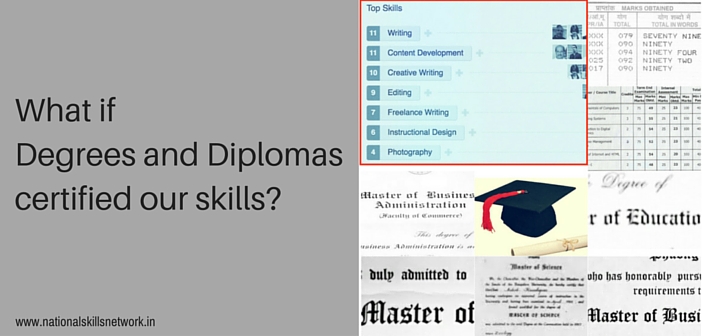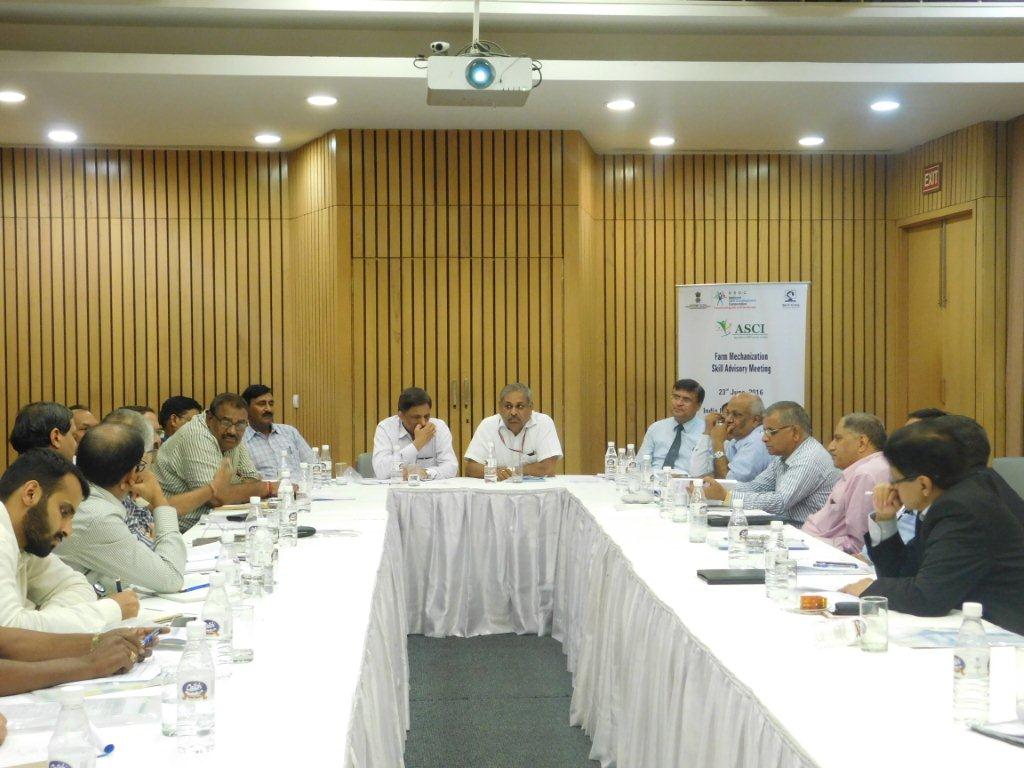One of the questions that keeps coming back in most of the discussions with my younger team members is about why we don’t talk about skill based learning in schools and colleges in India. And, when such questions are debated and discussed by a bunch of youngsters who are on the threshold of jobs and careers, it brings in refreshingly different perspectives to understand the gap between formal educational qualifications (Degrees, Diplomas) and job requirements (practical knowledge, skills). It also aligns our career goals through systematic preparation, practice and professional outlook, in a proactive way.
 To achieve skill based learning in schools and colleges, we should start working towards a holistic view of education that connects with employment and employability by adopting NSQF. Today, we are trying hard to plug-in the skill gaps or similar loopholes with short term training, polishing the students and preparing them for the industry. What is actually needed is an early stage appreciation of skills, adoption of quality and standards that are in line with the industry requirements.
To achieve skill based learning in schools and colleges, we should start working towards a holistic view of education that connects with employment and employability by adopting NSQF. Today, we are trying hard to plug-in the skill gaps or similar loopholes with short term training, polishing the students and preparing them for the industry. What is actually needed is an early stage appreciation of skills, adoption of quality and standards that are in line with the industry requirements.
Rather than solely focusing on much sought after salary figures and high paying jobs as the goal of all education, we need to quickly address the root cause of skill deficit by promoting a learning culture and a curriculum that emphasizes on enhancing productivity, efficiency and performance. This can be a good starting point to convey the significance of skill based learning.
Thanks to LinkedIn our profiles have the option to display our skills in addition to our qualifications. Being an enterprise social networking platform, LinkedIn also enables skill endorsements. Job portals mention skills necessary for various job roles and levels. Most job advertisements also list down the skills that are mandatory or desirable for a particular job.
Other than such instances, skills are emphasized in training programs. In fact, all training courses are expected to deliver on practical, hands-on, tangible outcomes. This is also commonly perceived as one of the ways of transforming theoretical knowledge into practical skills.
Complement knowledge with practical exposure
High school and college programs are predominantly knowledge-oriented. The practical components are limited to few subjects and they end up being laboratory assignments. Due to many constraints such as the examination and evaluation framework, students either don’t get a chance to explore and experiment through skill building or they are not ‘taught’ that unless knowledge is balanced with application through practice, it will not get appreciated well. Since the Indian education system is still implemented as an end in itself, it needs to be balanced with learning hands-on to bring in the industry and job focus. This will bring the much-needed respect and dignity for manual skills. Otherwise, we will continue to churn our engineers and manager who may be well-versed in theories with little practical exposure.
It may be difficult to award Degree and Diploma certificates that display our skill levels and proficiencies. But, it is not that difficult to introduce skill based projects and similar practical components that testify the students achievements in applying knowledge, coming up with innovative ideas and putting them to use.
Focus on industry recognition of knowledge and skills
True, scoring in exams is most important! Perhaps, it is the only way to prove to the world that we have the right qualifications in different subjects. But, these marks and GPAs alone don’t help us getting the right jobs. Again we are confronted with the gap between what the Degree or Diploma endorses and what is expected from the industry in terms of levels of accomplishments in various skills.
Skill based learning in schools and colleges for holistic learning
Holistic learning is all about the right mix of knowledge and skills. It helps in improving our abilities and enhancing the competencies. We don’t have the luxury to pursue education for its own sake. All of us want Degrees and Diplomas to get us well-paying, professionally satisfying jobs or prepare us for meaningful self-employment. This can be achieved only when there is awareness and respect for skill based learning in high schools and the options to mix and match vocational skills with popular subjects within the scope of the prescribed curriculum.
Awareness about skill-based, solution-centric learning can bring in a positive shift in making students aware of the actual job scenario through real work environment in the industry. If they don’t learn early-on about how their formal education is going to help them get their dream jobs or the career they aspire for, they will never get an opportunity to realize their dreams. And, of course, skill are dynamic, we need to learn, unlearn and re-learn in order to upgrade as knowledge and technology changes and transforms the workplace requirements.













